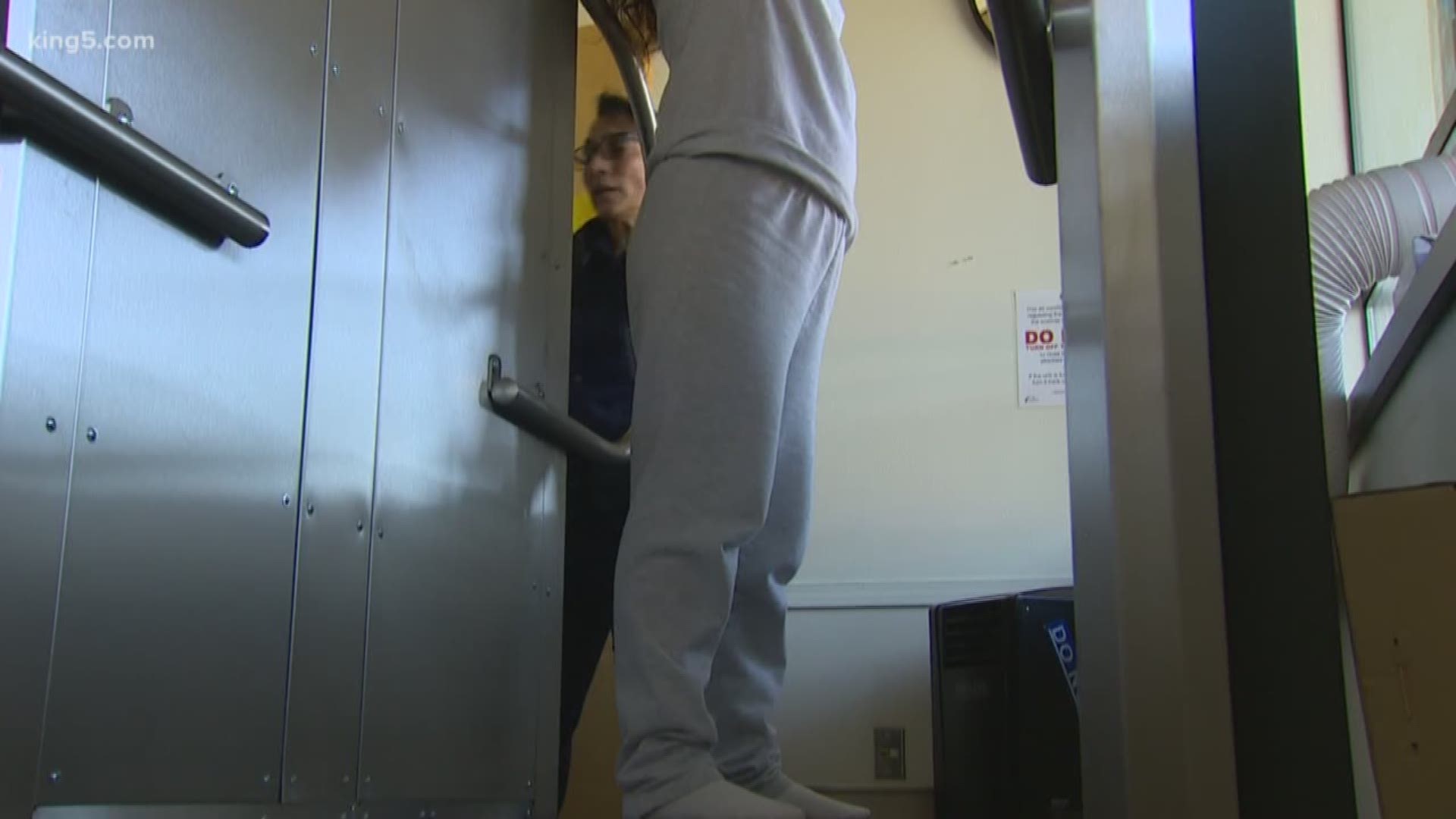OLYMPIA, Wash. — Washington state's Department of Corrections said it found an effective way to find drugs, weapons, and other items considered contraband. But how the state is seizing those illegal items is raising concerns.
In February 2019, DOC installed an X-Ray body scanner at the Washington Corrections Center for Women in Gig Harbor. It was an attempt to reduce the number of strip searches – thought to be invasive, especially for female offenders.
According to the state, corrections officers found as many items in the first two months of scanning as they did in the prior year.
Items found included drugs such as methamphetamines and heroin, to household items such as earplugs, hair ties, cigarette lighters, and jewelry. Women either swallowed or inserted the items into their bodies.
The number of contraband discoveries prompted Sen. Keith Wagoner (R-Sedro-Woolley) to propose a bill to install scanners at all of the state’s prisons.
But the Office of Corrections Ombuds, a state agency that handles DOC complaints, expressed concerns about expanding the practice.
Director Joanna Carnes said the women are put through “a very traumatic” experience when they are believed to be smuggling an item.
When offenders are believed to be smuggling contraband, they are placed in what are known as dry cells. Those dry cells are isolated living quarters without toilets. When an offender has to use the restroom, they are escorted to a bathroom and watched until any evidence is found.
Dry cells are not new. However, the scanner pilot program increased dry cell use in the corrections center, according to a legislative report.
"The pilot challenged the facility's operational ability to conduct multiple, long-term dry cell watches," the report states. "The 87 incarcerated individuals placed on dry cell watches accounted for 1,309 hours of required extra posts and over 1,000 overtime hours."
Carnes said her office has received complaints from offenders who said they spent multiple days in the dry cells.
One inmate reportedly was in the isolation cell for 19 days.
Other inmates said they were sent to the dry cells even though they had not smuggled anything, alleging the corrections officers had misread the x-ray results.
Sen. Jeannie Darneille (D-Tacoma) said it was “quite shocking” to hear how the dry cells are being used.
“Some might argue that’s more torturous than strip searches,” Darnielle said.
She did not expect the proposed law to pass this session, without changes made to the dry cell process.
Department of Corrections spokesperson Janelle Guthrie released this statement to KING 5: “Undetected contraband, specifically illicit drugs, poses serious health, safety and security risks to our incarcerated individuals and staff which is why dry cell watches are critical in contraband situations. We provide one-on-one direct supervision and hourly medical assessments by health care staff 24/7 to ensure individuals’ health and safety.”
Darneille said the state may consider installing a body scanner in a male prison.

